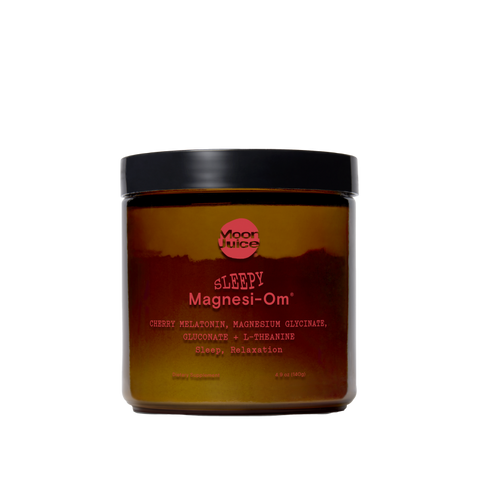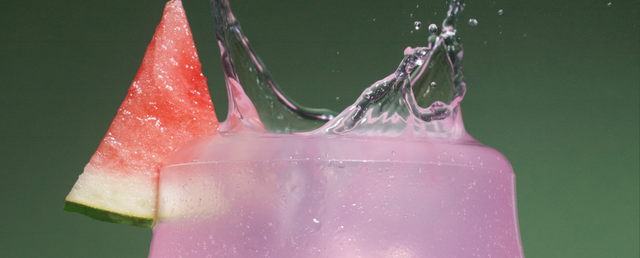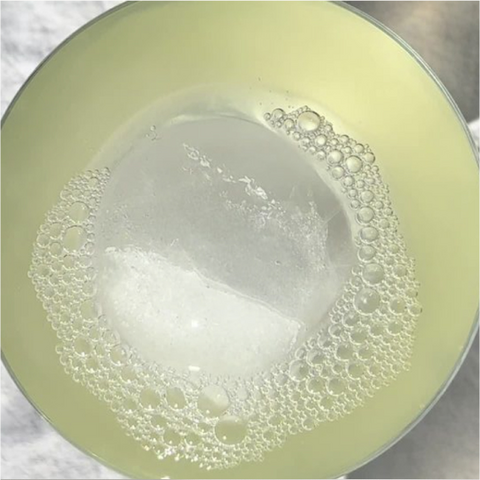If you've ever struggled to get a restful night's sleep, chances are you've turned to melatonin for support — only to wake up the next morning with that not-so-helpful melatonin hangover. The groggy aftermath that can follow melatonin use can sometimes last so long it makes you wonder if taking melatonin in the first place was worth it. The surge in self-dosing melatonin for various sleep problems, from jet lag and shift work to restless nights, has resulted in more people experiencing hangover-like symptoms because melatonin can make you groggy sometimes. But with a few simple tweaks, you can achieve restful sleep while avoiding its hangover symptoms and effects.
In this article, we’ll explore the intricacies of the melatonin hangover — what it is, how long its effects linger, and most importantly, how to sidestep this not-so-cozy aftermath by selecting the right type of sleep-supportive melatonin supplement.
What is a Melatonin Hangover?
To grasp the occurrence of the melatonin hangover, understanding melatonin’s role in our sleep cycle is essential. Low levels of melatonin (.3mg) are required by the body to regulate our circadian rhythm (our internal clock that tells us whether to sleep or stay awake). Taking a melatonin supplement before bed gives us the opportunity to reset our circadian rhythm, which may be temporarily out of balance. However, if the dose is too high (anything over our naturally occurring .3 mg) the result will inevitably be an unpleasant melatonin hangover. Unfortunately, many people don’t know how much melatonin to take, often leading to unwanted hangover symptoms. Simply put, the hangover sensation occurs when too much melatonin floods the body, causing too much of a good thing to disrupt our sleep-wake clock even further and cause daytime drowsiness.
What Causes a Melatonin Hangover?
As we dive further into the science, we learn that the timing of melatonin dosage matters just as much as the dosage itself. Yes, overwhelming brain receptors by taking too much Melatonin supplementation can result in the notorious hangover feeling and prevent you from achieving quality sleep. But, taking Melatonin too late at night or in an extended-release form can also be the root cause for the next day grogginess. Surprisingly, many people who take melatonin supplements claim to dose 5 mg or more a night, making Melatonin hangovers quite common. If you struggle with sleep problems, it's wise to start with a low dose when trying any sleep supplement to minimize the risk of Melatonin side effects.
Symptoms of a Melatonin Hangover
Wondering if you're experiencing a melatonin hangover? The telltale signs of a melatonin hangover include:
- Daytime sleepiness
- Dizziness
- Headache
- Nausea
- Moodiness
Despite their unwelcome presence, these Melatonin side effects are considered mild adverse effects and will go away over time, depending on a few factors that we’ll explore below.
How Long Does a Melatonin Hangover Last?
If you’re experiencing a melatonin hangover, you might be asking yourself – how long is this going to last? Individual factors, like the time of supplementation, personal metabolism, and even genetics, all impact the possibility and length of a Melatonin hangover. Melatonin supplementation usually begins to kick in 30 minutes to 1 hour after consumption and may stay in the body for 4-8 hours. However, the use of extended-release formulas or higher doses may cause Melatonin to stay in the body for longer, making the hangover more likely to occur. In fact, a small study found that people who took large doses of Melatonin showed high levels of Melatonin in their body for up to 10 hours!
While the length of a Melatonin hangover is dependent on a few factors, it's important to remember that the daytime sleepiness will go away on its own a few hours after waking.
How to Avoid a Melatonin Hangover
Understanding how to use melatonin effectively is key to sidestepping the grogginess and any other potential side effects that can follow its misuse. Here are some tips to help you tailor your melatonin use to avoid a hangover:
1. Mind the Dosage
Stay close to nature and opt for the lowest effective dose to achieve quality sleep. Your body naturally creates around .3 mg of melatonin a day and studies show that a microdose of 0.3mg is actually more effective than higher doses in reducing the time it takes to fall asleep while also avoiding hangover symptoms.
2. Timing Matters
So, how long does it take for Melatonin to work? Taking oral melatonin 30 minutes before bed helps you wind down and gives you the best shot at avoiding a Melatonin hangover. Be sure not to take it too late if you’re looking to rise early, since it does take 4-8 hours for the body to process it.
3. Avoid Extended-Release Melatonin
If you’re finding that Melatonin hangover symptoms persist, it might be worth checking which type of Melatonin supplement you’re using.
While extended-release Melatonin is designed to prolong its effects through the night, it can lead to daytime drowsiness and lingering grogginess. This form of Melatonin supplement stays active in the body for an extended period, which may disrupt your sleep-wake cycle, causing hangover-like symptoms and a slower start to your morning.
For better sleep quality, try switching to immediate-release Melatonin. Immediate-release options are absorbed and processed more quickly by the body, reducing the chance of daytime sleepiness or hangover symptoms the next day.
4. Combine with Magnesium
Shockingly, 50% of Americans do not get enough Magnesium. A magnesium deficiency can result in a disrupted circadian rhythm, decreased melatonin production, and even sleep challenges. Supplementing with magnesium can support the body’s response to stress, promote relaxation, and facilitate sleep without triggering a hangover. Combining melatonin with magnesium can enhance each of their effects and set you up for sleep success.
5. Choose the Right Supplement
Find a good sleep-supportive supplement that combines the lowest effective dose of melatonin, magnesium, and other sleep-nurturing ingredients to ensure a good night’s rest and hangover-free morning.
Sleepy Magnesi-Om combines a microdose of plant-based melatonin, magnesium, and l-theanine to relax muscles, help you fall asleep fast, and sleep deep. It’s great for travel, shift work, and nights when you have trouble falling asleep. Plus, this melatonin and magnesium powder for sleep dissolves in water, has zero sugar, and tastes like organic blackberries.

6. Consider Your Age
Melatonin may linger in older individuals than in younger ones which can cause that unwelcome daytime grogginess — another reason why mega-doses of melatonin don’t actually help in the long run! Adjusting the dosage based on age can help prevent a melatonin hangover.
7. Create a Sleep-Supportive Environment
Do your part to foster a cozy sleep environment by having wind-down time before bed, following a consistent sleep schedule (when possible), adding movement and relaxation practices into your day (they’re proven to make drifting off to sleep easier), keeping a quiet and cool sleep area, and avoiding screens, caffeine, and large meals before bedtime. These healthy sleep tips can do wonders not only for your sleep, but for your overall health.
8. Try Natural Alternatives
If you’re looking to sidestep Melatonin hangover symptoms while improving sleep naturally, consider prioritizing activities that support your body’s natural rhythm.
Incorporating a relaxing nightly routine, such as gentle stretching, breathing exercises, or a warm bath, can help signal your body to prepare for sleep. Daily movements, like a brisk walk or light yoga, can also improve your sleep cycle, making it easier to drift off naturally.
These practices, paired with a consistent bedtime, can make all the difference, allowing for more restful, refreshing sleep without relying on Melatonin supplementation.
By incorporating these tips into your melatonin routine, you can get the benefits of better sleep while avoiding the unwelcome side effects of a melatonin hangover.
Takeaways
Melatonin hangovers occur when an excess of this sleep-inducing hormone disrupts the body's natural sleep-wake cycle. Melatonin hangovers do dissipate on their own but instead of surviving them, you can avoid them altogether. Steering clear of a melatonin hangover is possible if you supplement with it thoughtfully. While there's no evidence of building a tolerance to oral melatonin, tailoring your dosage to reflect nature is a great way to prevent the groggy morning after-effects.
Remember: opt for the lowest effective dose (our body naturally creates .3 mg of magnesium daily), combine with Magnesium, and take it around 30 minutes before bed to achieve healthy sleep. And the more you do your part to foster a cozy sleep situation, the less your body may need to rely on melatonin to set you off to slumber. By incorporating these tips into your melatonin routine, you can get restful sleep and avoid a melatonin hangover altogether.
Sources
- JAMA Network, Trends in Use of Melatonin Supplements Among US Adults, 1999-2018 https://jamanetwork.com/journals/jama/fullarticle/2788539
- Springer Link, Adverse Events Associated with Melatonin for the Treatment of Primary or Secondary Sleep Disorders: A Systematic Review https://link.springer.com/article/10.1007/s40263-019-00680-w
- National Center for Complementary and Integrative Health, Melatonin: What You Need To Know https://www.nccih.nih.gov/health/melatonin-what-you-need-to-know
- National Library of Medicine, The Safety of Melatonin in Humans https://pubmed.ncbi.nlm.nih.gov/26692007/
- National Library of Medicine, Melatonin: Pharmacology, Functions and Therapeutic Benefits https://www.ncbi.nlm.nih.gov/pmc/articles/PMC5405617/
- Wiley Online Library, Melatonin pharmacokinetics following two different oral surge-sustained release doses in older adults https://onlinelibrary.wiley.com/doi/10.1111/j.1600-079X.2011.00958.x
- Mount Sinai, Melatonin https://www.mountsinai.org/health-library/supplement/melatonin
- National Library of Medicine, Effects of low oral doses of melatonin, given 2-4 hours before habitual bedtime, on sleep in normal young humans https://pubmed.ncbi.nlm.nih.gov/8843534/
- National Library of Medicine, The effect of magnesium supplementation on primary insomnia in elderly: A double-blind placebo-controlled clinical trial https://www.ncbi.nlm.nih.gov/pmc/articles/PMC3703169/
- National Library of Medicine, Association of magnesium intake with sleep duration and sleep quality: findings from the CARDIA study https://pubmed.ncbi.nlm.nih.gov/34883514/
- Centers for Disease Control and Prevention, Tips for Better Sleep https://www.cdc.gov/sleep/about_sleep/sleep_hygiene.html














